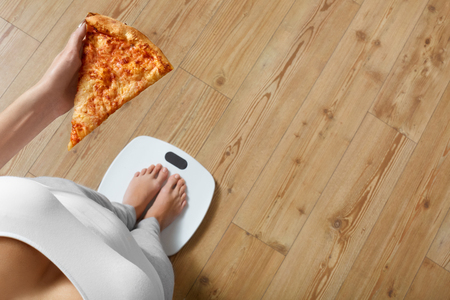Some of the “side effects” are that excessive carbohydrates can cause an increase in the total caloric intake, causing obesity. In the U.S., over one-half the population is overweight. However, being obese is different from being overweight. An individual is considered obese when weight is 20% (25% in women) or more over the maximum desirable for their height. When an adult is more than 100 pounds overweight, it is considered morbid obesity. Obesity is also defined as a BMI (body mass index) over 30 kg/m2. Patients with a BMI between 25 and 29.9 are considered overweight, but not obese.
The rates of obesity are climbing. An ominous statistic is that the percentage of children and adolescents who are obese has doubled in the last 20 years. During this same time, the per capita consumption of sugar, from 20 pounds per person in 1930, has risen to 135 pounds per person today, especially among children. While there is no clear link to diet yet, eating too much sugar may be a major cause among children in juvenile onset diabetes. Also, their seems to be a direct relation between sugar intake and obesity, i.e., the more refined or simple sugars one ingests, the more likely they are to become overweight, especially as they age.
The basic nutritional needs of most people are approximately 2,000 calories a day for women, and 2,500 for men. However, a professional athlete or manual laborer may need 4,000 or more. Pregnant women and nursing mothers require about 300-500 more calories/day than women who are neither pregnant nor nursing.
Because the body cannot store carbohydrates, the excess intake is converted to fat and stored. One pound of fat represents about 3,500-4,100 excess calories.
Obesity increases a person’s risk of illness and death due to diabetes, stroke, coronary artery disease, hypertension, high cholesterol, and kidney and gallbladder disorders. Obesity may increase the risk for some types of cancer. It is also a risk factor for the development of osteoarthritis and sleep apnea.
Genetic factors also play some part in the development of obesity – children of obese parents are 10 times more likely to be obese than children with parents of normal weight.
Common Causes of Obesity
- Consumption of more food than the body can use
- Excess alcohol intake
- Sedentary lifestyle
As a note, alcohol carbs average 7 calories per gram compared to 4 for normal carbs from bread, etc. And, the energy from alcohol serves immediate calorie needs, which means additional calories are stored as fat – in simple terms.






